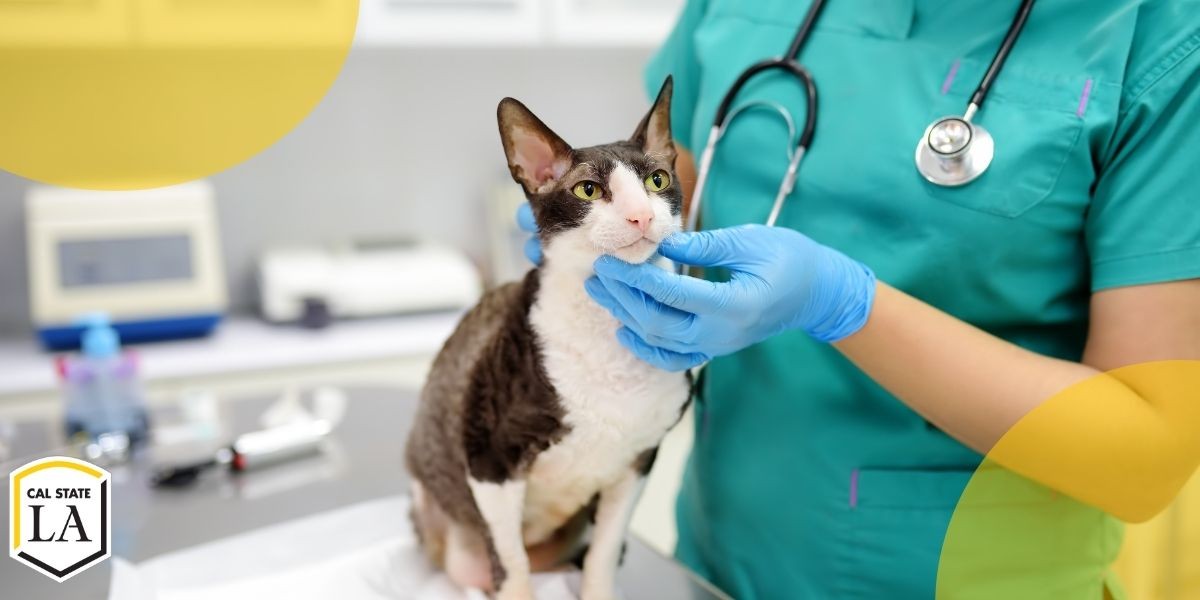Information on this page is for general guidance only. Admission and licensure requirements vary and may change; students must verify details with relevant schools or licensing bodies. Strong performance in related coursework and extracurricular experiences will help strengthen your preparation.

Pre-Vet Student Resources
The American Veterinary Medical Association's Veterinary Admissions 101 page is a useful resource.
Read the Pre-Vet FAQ's provided by the American Association of Veterinary Colleges.
Yes, there is an excellent publication that would be of great interest to you. It is published by the Purdue University Press, Lafayette, IN. The title is "Veterinary Medical School Admission Requirements in the United States and Canada (Current Year)" (ISBN# 1-55753-314-8).
Yes, very much so, and this should be a consideration in deciding to which schools to apply. The Veterinary Medical School Admission Requirements book given above lists the current tuition rates and the applications and admissions for out-of-state students. The applicant/admission ratios are inflated because most students apply to several veterinary schools, however, they give some guidance as to the acceptance rates of the various schools.
First, you need to understand that application classification is based on the state of residency and not the undergraduate school you attend. Most veterinary schools classify applications as from a state resident, from a contract-state resident or from someone usually referred to as "at-large" or "non-resident"
You should apply before each school's published deadline. Submit your application in the fall semester one year before you hope to attend. Deadlines range from mid-October through early January. This will normally be the first semester of the senior year and students should plan to complete most of the veterinary school requirements by the end of the seventh semester.
Yes. The Student Doctor Network (SDN) is a nonprofit educational organization has been recommended by our prevent students as a valuable recourse for students preparing for, and applying to, Med School, Vet School, etc. The site includes sections for Medical, Dental, Veterinary, Optometry, Pharmacy and Podiatry. The forums may be very helpful especially in preparing for the interview.
Qualified pre-veterinary students tend to apply to several schools. It is costly to do so but enhances possibilities for admission.
It is wise to take them in the second semester of your junior year for experience and again in the fall of your senior year after completing more course work. Schools require only one test, but not all schools require the same test. Be sure to plan. Your advisor will help you if you have additional questions.
In general, this is not necessary as such courses are expensive and most students can do well using one of the many books or CDs on how to prepare for GRE exams. However, some students will benefit from the discipline of a formal course. If you have questions, see your pre-veterinary advisor.
Yes, veterinary schools appreciate patience and persistence. You can use the extra year to enhance your qualifications and application. For example, additional work experience, or graduate course work may be helpful. Be sure to contact the schools and ask what can be done to strengthen your application.
The FAQ's above are from the University of Connecticut.
PRE-REQUISITE COURSES
This is not a comprehensive list; please refer to your preferred program's website.
A summary of prerequisites for various Schools can be found in the American Association of Veterinary Medical Colleges Guide.
- BIOL 1100 - Principles of Biology I
- BIOL 1200 - Principles of Biology II
- BIOL 3400 - Cell Biology and Genetics
- MICR 3100/BIOL 3100 - General Microbiology
- CHEM 1100 - General Chemistry I
- CHEM 1110 - General Chemistry II
- CHEM 2200 - Organic Chemistry I
- CHEM 2201 - Organic Chemistry Laboratory I
- CHEM 3200 - Organic Chemistry II
- CHEM 2211 - Organic Chemistry Laboratory II
- CHEM 4310 - Biochemistry I
- PHYS 1100 - Physics or PHYS 2100 - General Physics I: Mechanics
- PHYS 1200 - Physics or PHYS 2200 - General Physics II: Electromagnetism and Circuits
- MATH 2040 - Applied Calculus I or MATH 2110 - Calculus I
- MATH 2740 - Introduction to Statistics or BIOL 3000 – Biostatistics
- BIOL 4330 - Integrative Human Physiology I
- BIOL 4340 - Integrative Human Physiology II
- PSY 1500 - Introductory Psychology
- SOC 2010 - Introduction to Sociology
- Animal Physiology (not offered at Cal State LA)